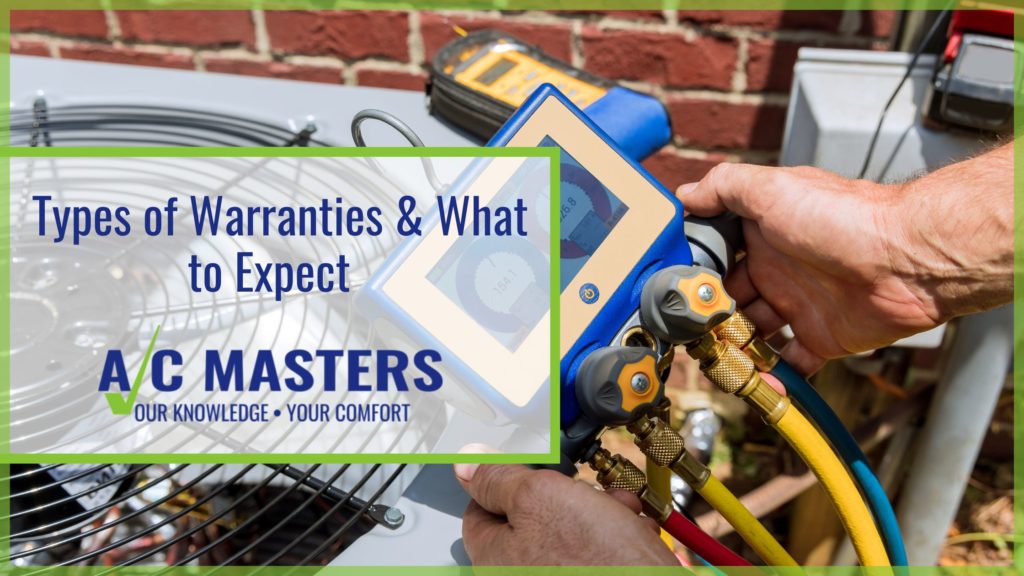Multiple warranties chock full of fine print can seem intimidating, but you’ll breathe a sigh of relief after reading this breakdown of the basics. The next time you’re looking at a warranty, you’ll have an understanding of the differences between manufacturer and labor warranties, what they generally do and don’t cover, and what you as a homeowner should remember to do to make your warranties last!
A manufacturer’s warranty comes from the equipment manufacturer whereas a labor warranty is provided by or sold by the company you’ve chosen to install your HVAC equipment.
Manufacturer’s Warranty |
What does it generally cover? Manufacturer’s warranties usually cover faulty materials. If HVAC repair is needed due to a faulty part, the manufacturer’s warranty should cover the replacement of that part. However, be aware that different parts of the HVAC system will be covered for different lengths of time under your warranty. It’s important to read the fine print to know for sure. What does it generally not cover?
How long does the manufacturer’s warranty last? It depends on the particular manufacturer, but most last at least 5 years if not longer. |
Labor Warranty |
What does it generally cover? Labor warranties provided by the installing company offer services such as call charges and labor costs associated with repairs for a number of years. How long does a labor warranty last? The length of a labor warranty depends on the company offering it. Some may offer two years but extend it even longer if you sign up for a service agreement. A/C Masters proudly offers a 10 year labor warranty available for purchase with HVAC installation.
|
We’ve covered what the manufacturer’s and installing companies are responsible for, but it’s important to recognize the responsibilities of the homeowner.
What is the homeowner responsible for?
- Homeowners should register their HVAC product with the manufacturer. Some companies do this as a courtesy for customers, but it is still the homeowner’s responsibility to make sure the registration is completed. Doing this simple task within a certain time period after purchase can extend your manufacturer’s warranty by years!
- Use an HVAC company you trust! Make sure the company you are using is licensed and be sure to check out the company’s reviews. For such a large purchase, you’ll want to feel comfortable knowing the unit is installed properly.
- Be careful not to void the warranty:
- While there are maintenance tasks a homeowner can perform such as changing filters, be sure to leave the repairs to the professionals. Attempting to repair or even replace parts yourself can void both the manufacturer’s warranty and labor warranty.
Now that you’ve read about the similarities and differences between manufacturer and labor warranties, you see how both are important in their own ways. Don’t be intimidated by the thought of reading through warranties. If you’d like to chat more about the different brands we carry and their accompanying warranties, feel free to give us a call. We’ll help you find the best fit for your needs.

